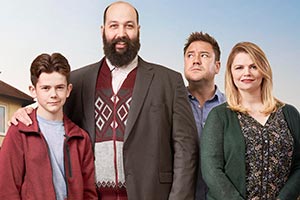Youssef Kerkour interview
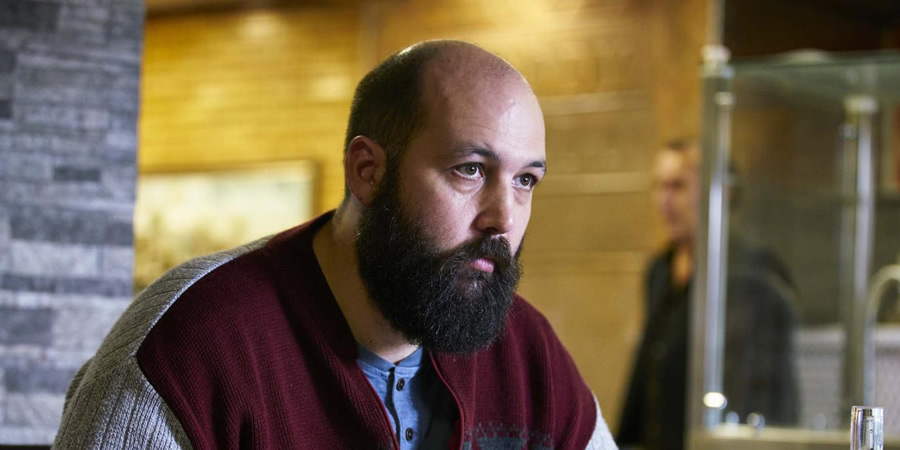
Youssef Kerkour talks about playing Sami, the refugee at the centre of Home.
Explain a little bit about your new series, Home.
What I always tell people is "Just think of Paddington, but instead of a cuddly bear, it's a big cuddly Syrian refugee." It's a story of a refugee who sneaks into the back of a car belonging to a lovely middle-class family on their way home from France. They get more than they bargain for when they arrive back home, and hilarity ensues. They help this refugee named Sami get back on his feet. The presence of this fourth person in the family starts to tug at the very nature of who they are, and their idea of home.
You play Sami. What's his story?
Sami is a teacher, one of the middle class in Syria, who had to eventually leave during the war. His story mirrors that of many people coming out of Syria, one of whom is Hassan Akkad, who Rufus spoke to extensively throughout the writing process, and who was on set as an advisor. He's an incredibly erudite commentator on the Syrian situation.
Sami's story mirrors Hassan's a lot, which is that the middle class were the ones that could afford to leave the country. They're the ones that had the means to get out. So those large caravans of migrants are full of professors, teachers, dentists, doctors. The poor are the ones who are still stuck there on the border, in camps. Sami is just trying to find his family, trying to get home. His sense of home, and what it means, has changed radically.
His family, the people that constitute his home, are miles away. What I love is that he doesn't fit the romantic stereotype of what one of the poor huddled masses looks like. The show subverts a lot of preconceptions.

What kind of research did you do? Did you talk to Hassan, for example?
Yes. He and I did a lot of work on the Arabic - my Arabic is Moroccan Arabic, so to get the Syrian right we had a lot of sessions with Hassan, and in doing so I asked him about his journey, because I thought it would be very useful to listen to his experience.
I'm half English, but I was born in another country, raised in another country, lived in a second other country, and moved to England when I was 23. I didn't have the same experience as Hassan, but there are certain experiences when you're new to a country that are universal. So I didn't have to dig very deep for that. It was more about the specifics, being in Syria, what that was like.
I read up on the political situation, but I didn't let myself get too bogged down in it. And I looked at what happens to people when they're separated from their family. You do a lot of thinking about what it must be like if everything you love is gone, if you get split up. It must be agony. I focussed a lot of my work predominantly on that sort of thing. The politics, and life in Syria, was something that I did very early on so that I could just park it in the background.
You mentioned the different types of Arabic - how different is the Syrian dialect from Moroccan Arabic?
It would be a bit like speaking Italian versus speaking Spanish. It's in the same family, but they're long lost cousins. The accent is different, the word choices are different, and the flavour is kind of different. But Syrian Arabic is closer to Moroccan Arabic than to Middle Eastern Arabic.
I played an Iraqi for a forthcoming Channel 4 drama, and I found that a much bigger leap to do the Iraqi than the Syrian, in spite of the proximity of the countries. But I also worked with Hassan on making my character not just Syrian, but from Damascus specifically. So it's a Damascene accent. There were a couple of moments on set where a line got changed, and that meant it needed to be re-learned, which meant Hassan needed to be convened on set, and a couple of panicky hours ensued while we tried to nail the accent.
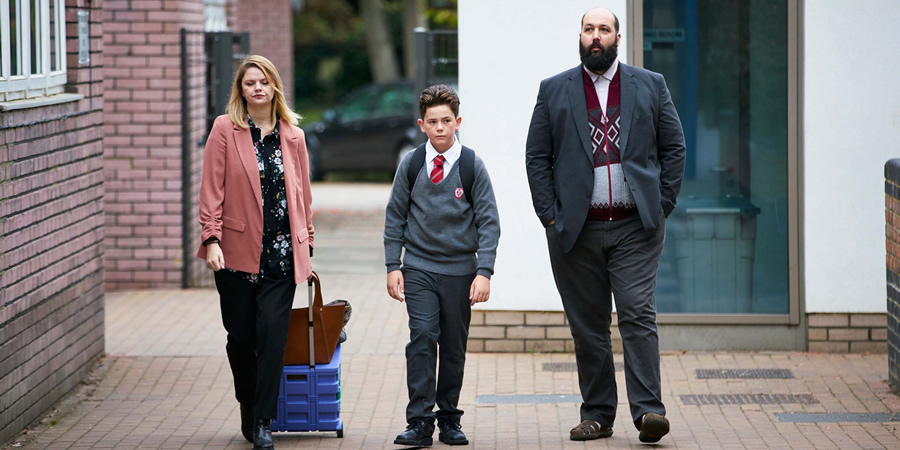
Did you talk to Hassan about his experiences of living with an English family?
Yes, I did. We talked about the specifics of what it's like to be a refugee when you first arrive in England. But what I also really wanted to know was what did it feel like, when you finally got into your first night's sleep with a family...
When you lay there in bed and put your head on that pillow, what was your thought? You're no longer sleeping on the floor, you're no longer in a migrant camp, you're now in a nice comfy bed, and you've made it. What goes through your mind then? And he said the shock of it was still there, and he said the shock lasted quite a long time. I fed off things like that.
The stories he told us about the time he was detained in prison in Syria - I will not repeat it to you or anyone else, but he said something about what he saw in prison that is, without a doubt, the worst thing I have ever heard in my entire life, and I will never get it out of my head. You only need to hear that once and you've got a whole season's worth of inspiration. Actors don't need much to work off, and I just had nugget after nugget after nugget.
Is there a danger that the show will alienate a lot of people with its subject matter?
It's handled very sensitively, and is aimed at a very wide audience, not just people who share the same political tendencies. That was very much at the forefront of everyone's minds - that this is a show for everyone, not just for people who believe refugees should be allowed into Britain and given a chance. That's not to say we can agree with them, but we can present this story in a way that allows everybody to understand it and empathise and enjoy. And that tightrope was walked the whole time.
It's the thing I'm most proud of. I'm not too worried about people who believe the same as me. I'm more interested in reaching those who don't believe the same as me and get them to see things my way. Preaching to the choir is lovely, but to do something truly worthwhile you've got to try and reach everybody.
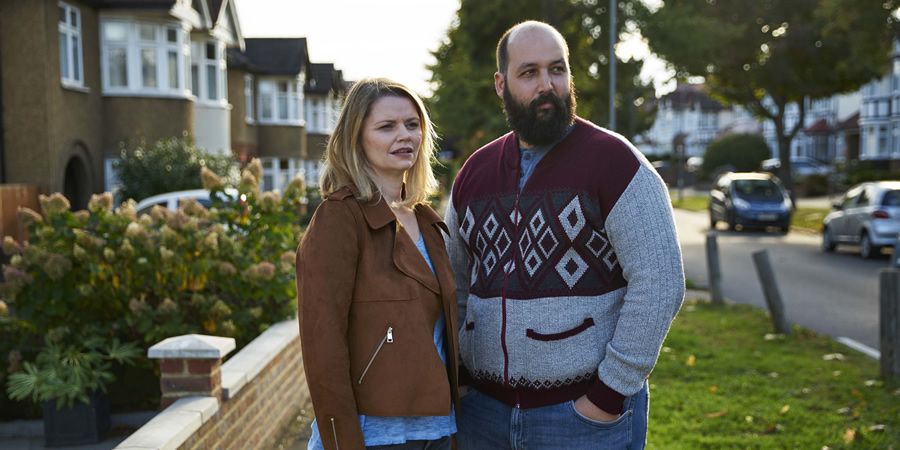
What do you think Sami makes of the UK?
I think Sami loves the UK - I identify with that, obviously. I think a lot of people who get to know the UK believe the same thing. The multiculturalism here is not something that can be underestimated. There is a sense that we have benefitted from many different cultures. There are people who find that this is a problem, but they're given a lot of airtime, they create the impression that the whole country's like this, but that's not my experience, and I don't think it's Sami's.
He wants to come to a country that will accept him, a country that has a lot of history to it and is so beautiful. It sounds superficial, but the land itself is very welcoming. I think he believes in its history, in what it does around the world, how people handle themselves.
You grew up in Morocco, and then initially moved to the US. What brought you to the UK?
My mother's English, my father's Moroccan, I was raised in Morocco, went to an international school, and grew up with a lot of cultures. I went to University in upstate New York, then lived in New York City. Then September 11th happened, and anyone with an Arabic name was pretty much not going to be able to get a visa to remain. So I came to England and started from scratch.
Sami sees two very different sides of Britain, the inclusivity and the hostility to those from other countries. Which side have you encountered more?
Exactly the same as Sami. I've encountered the positive side more. In London I walked about feeling more free than I did in New York City. In the US you have to hide, for a little while, the fact that you're not American. In England I felt the multiculturalism of London. But I was a touring actor for a long time, and when I toured the regions, as wonderful and inclusive as this country is...
As an actor, you have to book digs. Put it this way, there's a large chunk of the UK that knows me as Joseph. Once we were going to the Midlands, and I rang up a digs place to ask if they had availability, she said yes, asked for my name, I said "Youssef," and then I winced because it had slipped out. She said "Okay," and then I received a call five minutes later saying "I'm so sorry, the room is fully booked and I hadn't seen it." It wasn't the first time that had happened. But then I rang back the same person an hour later, put on my American accent, called myself Joseph, and the room was miraculously available again.
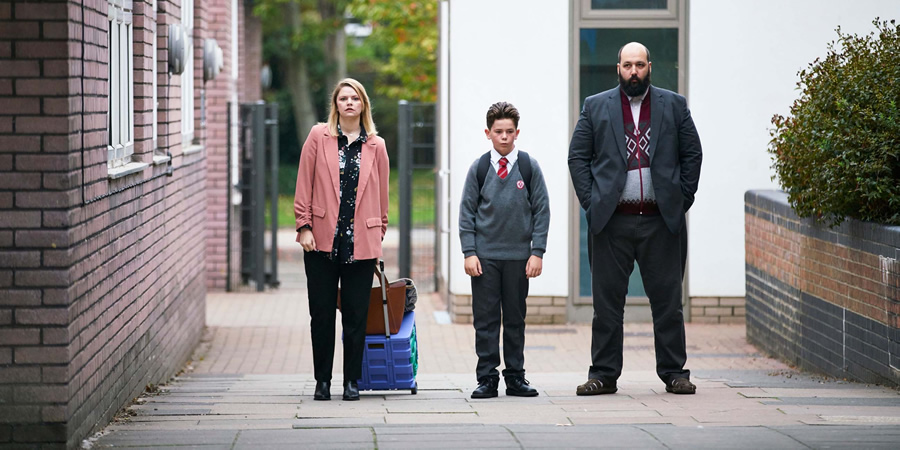
How depressing!
It is a little, but over the years I've come to feel not too harshly about that. We're all guilty of holding on to what we know. The last hurdle we have in the Western World is that people's names tend to come with a lot of baggage. So now I tend to book myself in as Joseph when I book digs.
Do you get the impression, post-Brexit, that people are more forthcoming withy their intolerant views?
Thankfully I haven't seen that, because I hang out with lovely people. I've done many different jobs, and I've always heard the slight xenophobia in people's tones, both here and in America. It's a human thing. I've seen it more on social media, but face-to-face I haven't experienced it. I don't think I stick out as being definitely born in England. Once people get my name, maybe things change a bit. But I've not been on the receiving end of anything straight up racist. In New York after 9/11, yes, definitely. That was bad. Not being let into bars and clubs and places or being told to behave myself. I've experienced that.
What does then role mean to you, personally, in terms of your career?
I usually play terrorists, so it's very nice to play the terrorised! That's initially where I'm coming from on this. I got a call from my agent a couple of years ago, saying "There is a pilot episode written by Rufus Jones, they would like to know if you'd be willing to do a reading. There's hardly any money in it, and they want to audition you first." Nobody auditions for readings, normally you ask someone politely if they want to do a reading. Right before I said "Absolutely no way," I said "Let me read the script first." And my immediate thought was "I really don't care if I don't get this, I just want the very best for them. This is beautiful."
I could not believe that this was actually a contender for being on television, because this was telling a story so well, tackling a subject head-on at a time when the word migrant or refugee was on everybody's lips, and people were calling them cockroaches and all the rest of it. All I wanted to do was go there, meet the person in the audition room, tell them all my ideas, let it all out, and then let them make the decision.
I'm 6'5", I'm a big guy who always plays ruffians and terrorists and killers and all the rest of it, and then they want me to play some innocent refugee. There was no way I was going to book it, but I had to go and speak to them. So I went in, met Rufus, gave all my thoughts and ideas, did the audition and hoped for the best. And from that day, Rufus and producer Adam Tandy have been so loyal. I owe them everything. It's one of the greatest characters I've ever played. It's the loudest heartbeat that I've ever felt. That is like gold to an actor.

